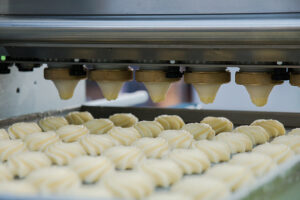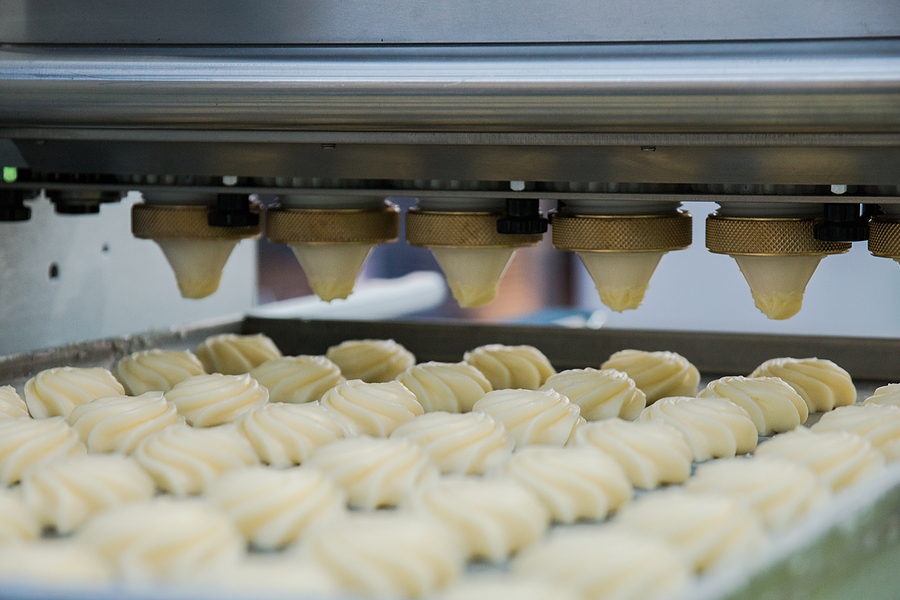 Many bakery manufacturers are at a crossroads. To keep up with soaring consumer demand, they are looking to automate their processes. But, for various reasons they may not be ready for a fully automated production line — for example, they may not have the capital or the space for a complete line, or there may be some steps in the process that they simply prefer to do by hand.
Many bakery manufacturers are at a crossroads. To keep up with soaring consumer demand, they are looking to automate their processes. But, for various reasons they may not be ready for a fully automated production line — for example, they may not have the capital or the space for a complete line, or there may be some steps in the process that they simply prefer to do by hand.
The good news is that automation isn’t an all-or-nothing endeavor. You can automate some processes now (and start capitalizing on the benefits of automation) and add on more automation as the need arises.
When should you automate?
The most common reason for automating a bakery line is increasing production capacity. Depending on your product, there will come a tipping point where the only way to get more product out the door will be through automation.
But capacity isn’t the only consideration. Labor resources in the bakery industry have been scarce for several years, a situation that has been made worse by the pandemic. Many bakery manufacturers are automating processes to reduce labor constraints.
A reason that’s talked about less is quality, especially with the artisan-style products that are in such high demand today. Many bakers are concerned that artisan products can’t be made using an industrial process, but modern equipment can make products indistinguishable from those made by a person. For example, our complete artisan bread line is built to gently handle high-hydration doughs without overworking so the desired crumb structure is always achieved.
Automation also increases consistency. Using checkweighers and guillotine cutters, the equipment produces dough pieces that are all the same weight, even if they aren’t the same size. This reduces the number of dough pieces that need to be thrown out and also helps ensure the uniform baking of all products.
Semi-automated vs fully automated
A fully automated line is just that — fully automated. Some ingredients may still be loaded manually (for example, micro ingredients such as leaveners are often still loaded by an operator), but other than that the entire process — from mixing to packaging — is done automatically.
We typically recommend fully automated lines only for the largest production capacities, such as bread lines processing at least 2,000 lbs/hour or cake lines producing 1,200 or more units per hour. For bakers with lower requirements or those first starting out, a semi-automated process is usually the best solution.
There are two major advantages of semi-automated bakery lines:
- They’re fully customizable for your needs. There is no single best way to automate a production line — it depends on your application and your challenges. For example, if you’re losing a lot of products because they’re under- or overweight, then a dough ball divider is a great place to start. Alternatively, if you’re short-handed, you may want to consider automated rack loading / unloading and depanning, which will allow your workers to spend more time on tasks that benefit from a human touch. Learn more about automating your bakery for maximum impact.
- You can always add more automation later. If you’re just getting started, we recommend thinking about automating your bakery line as a journey. Start with the biggest pain point or bottleneck in your process, then, once you’ve solved that challenge, move onto the next one.
How to get started with automation
No matter where you are in your automation journey — whether you’re incorporating your first machine or you’re on your way to a fully automated solution — we recommend you always test your products on the equipment. This is especially important for challenging applications, like very high-hydration artisan bread and gluten-free products. As a general rule, the more unique your product, the more important the testing phase.
Naegele specializes in helping bakery manufacturers automate their operations, from commercial bakeries purchasing their first piece of equipment to large industrial processors installing complete production lines. Fill out our contact form to talk with one of our bakery experts.

